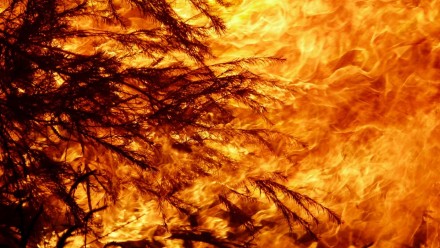Recent Australian wildfires made worse by logging
Logging of native forests increases the risk and severity of fire and likely had a profound effect on the recent, catastrophic Australian bushfires, according to new research.
In the wake of the country's worst forest fires in recorded history, University of Queensland researchers have been part of an international collaboration, investigating Australia's historical and contemporary land-use.
UQ Professor and Wildlife Conservation Society Director James Watson said logging regimes have made many forests more fire prone for a host of reasons.
"Logging causes a rise in fuel loads, increases potential drying of wet forests and causes a decrease in forest height," Professor Watson said.
"It can leave up to 450 tonnes of combustible fuel per hectare close to the ground - by any measure, that's an incredibly dangerous level of combustible material in seasonally dry landscapes.
"By allowing these practices to increase fire severity and flammability, we undermine the safety of some of our rural communities.
"It affects wildlife too by creating habitat loss, fragmentation and disturbance for many species, with major negative effects on forest wildlife."
Lead author, Australian National University's Professor David Lindenmayer, said there are land management actions we can take to stop these fires from occurring in the future.
"The first is to prevent logging of moist forests, particularly those close to urban areas," Professor Lindenmayer said.
"We must also reduce forest fragmentation by proactively restoring some previously logged forests.
Read the full article on the EurekAlert! website, featuring commentary by Prof David Lindenmayer











